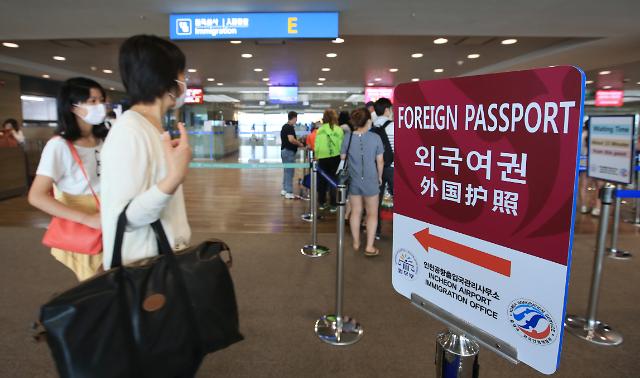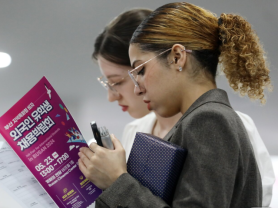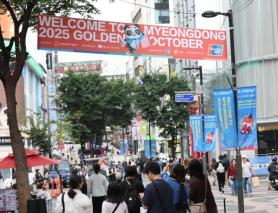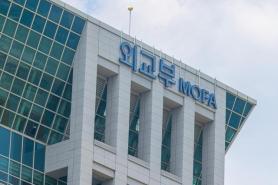
[Yonhap Photo]
South Korea will toughen legal requirements for issuing the visa for foreigners engaging in entertainment and hotel services here.
There have been lingering reports that the holders of the E-6-2 visa, a requisite for non-Korean residents to perform in hotels, bars and clubs, end up doing sexual entertainment services rather than cultural performances, eventually becoming illegal immigrants. Many of these workers are not paid on time, according to the Ministry of Gender Equality and Family.
The plan came out during an inter-government meeting presided by Vice Gender Equality Minister Kwon Yong-hyun. The meeting was attended by director-general-level officials from 18 ministries and state agencies, including the Ministry of Justice, Ministry of Culture, Sports and Tourism and the National Police Agency.
"Sexual labor is evolving and diversifying to the degree that it cannot be resolved by a single ministry," Kwon said in his opening address at the conference.
"We need strong support and cooperation among different government bodies, since sex labor relates to different regulations and policies under different jurisdiction."
For tougher requirements for E-6-2 visa applications, the South Korean Culture Ministry plans to require a minimum of three years work experience in related fields for performance quality, and will screen the criminal records of potential employees.
The Justice Ministry will dismiss the visa application if the workplace has closed privacy rooms or does not have an exclusive stand-by room for performers. The ministry is considering implementing mandatory interviews for visa applicants from countries with 30 percent or higher rates of illegal immigration, such as the Philippines.
As of the end of March, a total of 4,018 international entertainment workers worked in local performance centers, tourist hotels, bars and clubs here on the E-6-2 visa, according to the government data.
During the cited period, Filipinos took up the majority at 80.5 percent of E-6-2 visa holders, followed by Ukrainians at 5.1 percent and Chinese with 4.8 percent.
By category of workplace, bars and clubs took up the highest at 78.4 percent, followed by tourist theaters and entertainment companies at 19 percent and tourist hotels at 7.1 percent.
(Yonhap)
Copyright ⓒ Aju Press All rights reserved.



